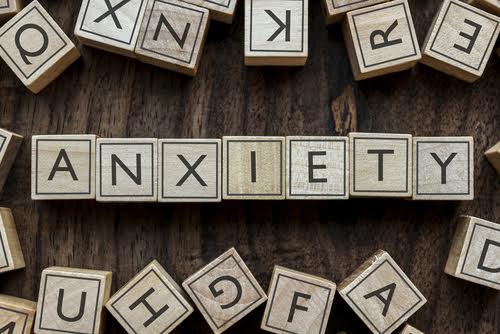Can you grow out of anxiety? This article explores the relationship between age and anxiety, shedding light on whether anxiety can naturally wane as individuals mature. Let’s dive into the different factors influencing anxiety disorders across a person’s life, and gain insights into managing anxiety symptoms at different stages of life.
Some kids are a little shy. Some kids are easily startled. Some kids worry more about things than others. Personality traits are sometimes learned, sometimes born, and sometimes both. But anxiety as a long-term state of mind is different.
To be anxious is to be worried or nervous. It’s a normal response to certain circumstances. Some people are more likely to become nervous or react with worry to situations. But that state of anxiety passes. We become calmer when we realize that the danger is gone, or that there isn’t anything to worry about. Most people learning to drive for the first time are nervous behind the steering wheel – but by the thousandth mile, even a nervous learner becomes a much more confident driver.
Anxiety that doesn’t pass – anxiety that persists or occurs out of nowhere – is not a normal reaction. It is often the sign of an anxiety disorder, a type of mental health issue with neurological, psychological, and social factors. People with anxiety disorders cannot shake the feeling that things will go wrong, even if they have no reason to. Their worries preoccupy and consume them and can be debilitating. Without treatment or a serious change of circumstance, anxiety disorders don’t go away – and they usually aren’t outgrown.
Anxiety disorders can occur at any age. Even young children (aged 6 and under) can experience abnormal episodes of anxiety and suffer from panic attacks. Anxiety also affects the elderly and is becoming a growing issue among society’s oldest. While anxiety disorders have a typical age of onset in the late teens and early 20s, they can also be diagnosed much later in life, or earlier. Like many other mental health conditions, the signs and symptoms of an anxiety disorder can differ between age groups.
Anxiety Disorders in Children
Some anxious feelings and patterns of worry are normal in children. Kids can be afraid of the dark, afraid of being alone, or afraid of going to school. Most of the time, they outgrow these worries – but when they persist, they can be an early sign of an anxiety disorder. Common symptoms of potential anxiety disorders among young children include:
- Extremely afraid of being away from their parents for any period of time, also known as separation anxiety.
- Being afraid of going to school, or being around strangers, as a form of social anxiety.
- Being worried about bad things happening all the time, also known as generalized anxiety.
- Extreme fear of a specific thing, situation, or feeling, to the point that they bring it up or are worried about it randomly.
- Experiencing random episodes of sudden, intense fear, increased heart rate, and dizziness, also known as a panic attack.
- Physical symptoms, especially stomachaches and headaches because of stress and worry. Kids can also get stress-related ulcers and mouth sores.
Risk factors for childhood anxiety include environmental ones, such as a stressful home environment, early history of abuse, or witnessing violence, but can also include internal factors such as genetics. A family history of anxiety disorders can increase the risk of developing an anxiety disorder, especially if it’s a close relation (older sibling or parent).
Differentiating between normal childhood fears and anxiety can be difficult. It’s important not to pathologize a child’s personality, but if their worries are interfering with life and school to the point that they cannot connect with other kids or are struggling, then consider talking to a pediatrician about screening for anxiety or another health issue.
Teenage Anxiety
The teen years are the most common for an onset of anxiety disorders, for biological, social, and psychological reasons. Teens are undergoing rapid hormonal changes, which can affect mood and mental wellbeing, as well as a growing awareness of social hierarchies and interpersonal relationships.
Teens are grappling with the mounting responsibilities of oncoming adulthood, while slowly maturing out of their childhoods. The teen years are wrought with elements of sudden, unwanted, and even violent change.
Whereas children are worried about being away from their parents or among strangers, teenagers become more worried about other people’s perception of them, their place in the world, as well as academic pressures or career anxiety. Signs of teen anxiety include:
- Lowered self-esteem
- Self-inflicted isolation
- Avoiding relationships with other people
- Difficulty focusing or retaining information
- Higher irritability than children or adults
- Greater degree of perfectionism (and mounting frustration)
- Frequent negative self-talk
- Constant complaints of fatigue
- Unexplained nausea, stomach aches, or loss of appetite
Anxiety disorders are more common than any other type of mental health issue, including depression and substance use issues. However, anxiety disorders often co-occur with other conditions such as those. Teens with diagnosed anxiety disorders also have a higher likelihood of early high-risk sexual behavior, binge drinking, early drug use, and unsafe/drunk driving.
Does Anxiety Go Away?
You can outgrow some fears, like the fear of the dark, or what’s underneath your bed. But mental health issues, when left unaddressed, don’t usually magically disappear. Most anxiety disorders tend to be chronic if not treated.
Even ADHD, which is often considered a childhood condition, can still be diagnosed in adults, and is becoming more prevalent as people gain awareness of the signs.
While growing older might not resolve your anxiety on its own, getting treatment can – the earlier, the better. Visions offers residential care programs for teens with mental health issues.
Our treatment modalities allow for a comprehensive holistic approach for conditions such as social anxiety, panic disorder, or substance use disorder. We leverage psychotherapy as well as experiential therapies. Learn more about our programs through our website, or give us a call.






